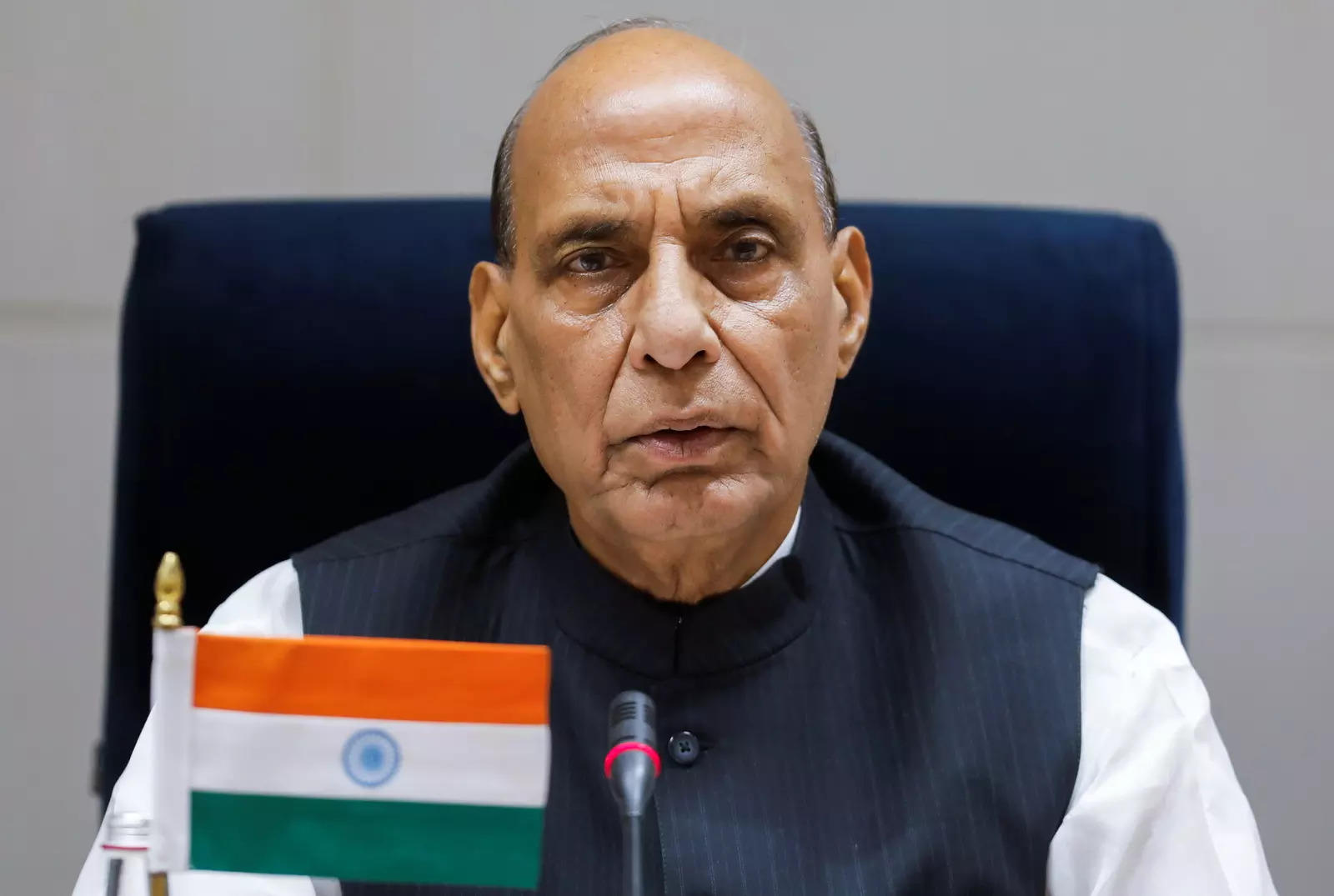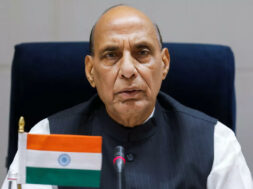
New Armed Forces Recruitment Policy “Agnipath” Announced to Reduce Salary and Pension Bills
Manas Dasgupta
NEW DELHI, June 14: The centre on Tuesday unveiled a new soldier recruitment scheme named “Agnipath” for all the three armed forces services, the army, navy and air forces scheme, a radical recruitment plan for armed forces largely on a short-term contractual basis, with an aim to cut the ballooning salary and pensions bill and freeing up funds for urgent procurement of weapons.
Defence Minister Rajnath Singh announced the new scheme at a media briefing in the presence of the chief of the three armed forces shortly after the Cabinet Committee on Security approved it. “The Agnipath recruitment scheme is a transformative initiative that will provide a youthful profile to the armed forces,” Singh said. “Under the Agnipath scheme, Indian youngsters will be provided an opportunity to serve in the armed forces as ‘Agniveer’,” the Defence Minister said.
Announcing the move Singh said it was a “historic” decision. Under the scheme, about 45,000 people between the age of 17.5 years and 21 years will be inducted into the services for a four-year tenure. The recruitments will begin within the next 90 days and the first batch will be ready by July 2023.
Those selected for the scheme will be known as Agniveers. The selection will be made through an online centralised system, the government said. Educational qualification for Agniveers will be the same as the criteria for regular positions in the force. The new system is only for personnel below officer ranks (those who do not join the forces as commissioned officers).
Women will also be inducted under the Agnipath scheme, Navy chief Admiral R Hari Kumar said. Army Chief General Manoj Pande said Agniveers would be fully assimilated and integrated into the services. This four-year tenure will include a six-month training. During this period, they will be paid a monthly salary between ₹ 30,000-40,000 plus allowances. They will also be entitled to medical and insurance benefits.
Importantly, during this period, 30 per cent of their salary will be set aside under a Seva Nidhi programme, and the government will contribute an equal amount every month, and it will also accrue interest. At the end of the four-year period, each soldier will get Rs 11.71 lakh as a lump sum amount, which will be tax-free, but they will not be eligible for pension benefits.
The forces announced that provisions have been made for loss of life or disability due to an injury on duty. They will get a Rs 48 lakh life insurance cover for the four years. In case of death, the payout will be over Rs 1 crore, including pay for the unserved tenure.
After four years, only 25 per cent of these soldiers will be retained and they will join the regular cadre and go on to serve for a full 15 years in non-officer ranks. For those who are re-selected, the initial four-year period will not be considered for retirement benefits. The move will make the permanent force levels much leaner for the over 13-lakh strong armed forces in the country, the government said.
The remaining will exit the services with a package between ₹ 11 lakh – ₹ 12 lakh, The scheme, if successful, will drastically cut the annual revenue and pension bill which accounts for half of the annual defence budget of ₹ 5.2 lakh crore. The government says the scheme will enhance the “youthful profile” of the forces and also bring about a transformational shift towards a more tech-savvy combat force.
Navy chief said the scheme would ensure a wider talent pool for recruitment in the armed forces while the army chief General Manoj Pande said the scheme aimed to bring a paradigm shift in recruitment in the armed forces. “It will help ensure optimum balance between youth and experience in the Army,” he added.
General Pande said the Army’s operational capability would be fully maintained during the initial implementation stage of the scheme. The “Agnipath” scheme, earlier christened as “Tour of Duty”, was launched in the presence of the chiefs of the three services.
The new scheme was announced after extensive deliberations on it over the last two years. Currently, the Army recruits young people under the short service commission for an initial tenure of 10 years, which is extendable up to 14 years.
The scheme is aimed at slashing the salary and pension bills of the three services, which have been increasing rapidly. The defence budget of ₹5,25,166 crore for 2022-23 included ₹1,19,696 crore for defence pensions. The allocation for revenue expenditure was ₹2,33,000 crore. The revenue expenditure includes the expenses on payment of salaries and maintenance of establishments.
Singh said the recruitment would begin within 90 days under the scheme which will bring “all India, all class” recruitment to the services. This would be especially significant for the Army, where the regiment system has region and caste bases, and with time that will be eliminated to allow anybody from any caste, region, class or religious background to become part of existing regiments.
The average age in the forces is 32 years today, which will go down to 26 in six to seven years, the scheme envisions. It would create “future-ready” soldiers, said Lt Gen Anil Puri, additional secretary, Department of Military Affairs. “This will also lead to availability of a higher-skilled workforce to the economy which will be helpful in productivity gain and overall GDP growth,” Singh said.
Lt Gen Puri said the government will help rehabilitate soldiers who leave the services after four years. They will be provided with skill certificates and bridge courses. The impetus will be to create entrepreneurs, he added.
The scheme, however, has drawn criticism from some quarters, with critics arguing that it will impact the fighting spirit and professionalism of forces. They have raised concerns that the four-year tenure may make soldiers risk-averse.













